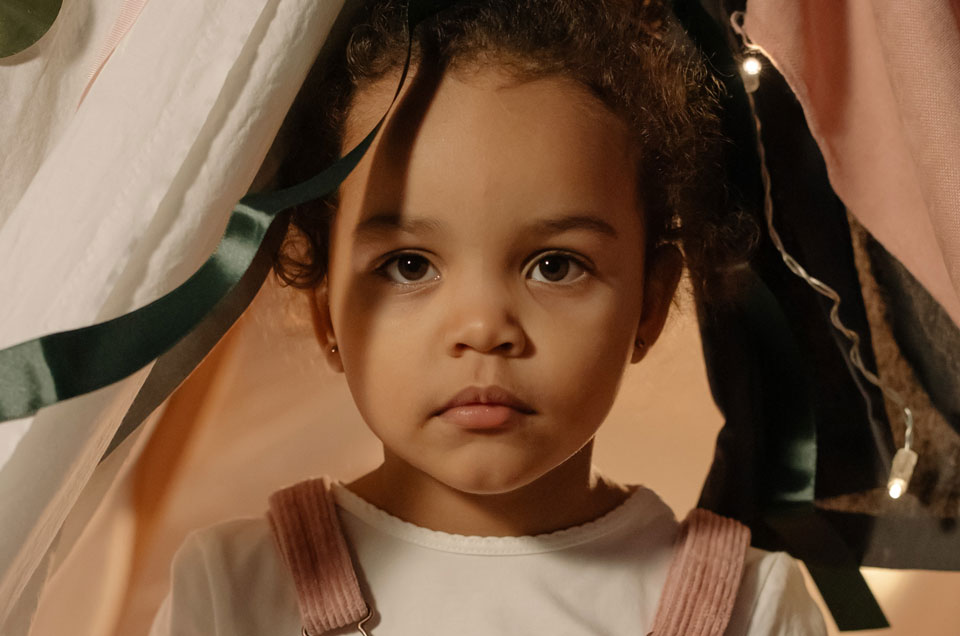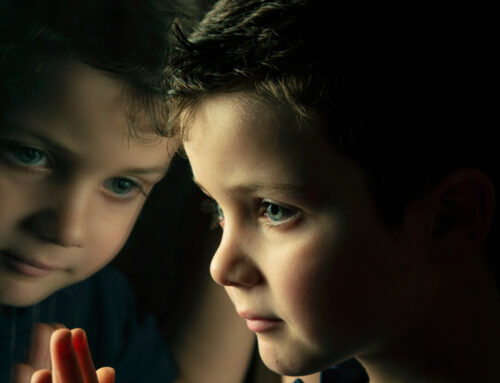In these worrying and unpredictable times, many of our children and young people are, sadly, struggling to cope. The years usually set aside for pre-school socialising, early years playdates or maturing and bonding as teenagers were spent instead, in the isolation of Covid-19 restrictions and lockdowns. On top of that, ‘The News’ is everywhere, all too often dramatically announcing stories of global concern that provoke fear in young minds well before parents or carers have the chance to filter information or explain it within a context.
It is no surprise that children of all ages are experiencing mental health issues spanning anxiety, depression, separation difficulties, social anxiety and disabling fears about the ups and downs of life, a fragile natural environment and an unsettled world.
Children with high learning potential can be especially prone to heightened emotional reactions as they tend to know relevant background information about situations and see possible consequences to events in much more depth than their friends – or even many adults. It is important to remember, however, that their maturity in comprehending what is going on is not the same as them having the emotional maturity or life experience to deal with their anxious feelings. Attempting to make them feel better with a simple, ‘Don’t worry’, won’t stop the troublesome scenarios conjured up by a highly active imagination; adults need to be ready to help and find targeted support for them.
What Should I Do?
It is important that parents and carers regularly check to see if their children and young people are worrying excessively about life. Think of it in terms of trying to:
- spot the signs
- listen
- learn more
- support the specifics
- help them to take action.
Since 1967, Potential Plus UK has been supporting children and young people with high learning potential and their families. Our website is full of advice, information, blogs and links, such as this resource round-up, which will guide you in how to spot and support areas of concern during worrying times.
Resource Round-Up
Spot the Signs & Listen
Signs of worry, depression or anxiety can vary – as do the associated avoidance moves and coping behaviours. Using your ‘gut feel’ or noticing there is ‘something different’ about your child’s mood or behaviour can be two of the most powerful things you can do.
Listen to them supportively and don’t judge; just encourage them to talk to you or even draw a picture to express how they are feeling. Seek help as appropriate from resources such as those below, a relevant charity, counsellor, GP, teacher or school pastoral team.
Use your gut feeling. Does something seem different? Is your child affected in their body, thoughts, feelings and/or behaviours? For example:
- Body: panic attacks, racing heart, breathing fast, sweating, shaking, tense muscles, wobbly legs, needing the toilet often, wetting the bed, feeling sick, repetitive actions, ‘hyper’/lack of energy, crying (for example).
- Thoughts and Feelings: upsetting /scary /obsessive /negative /bleak thoughts, preoccupied, nervous, ‘down’, on edge, overwhelmed, out of control, heightened senses, sleeplessness, bad dreams, lack of concentration (for example).
- Coping Behaviours (possibly unhealthy ones): withdrawing, avoiding new things and social situations, school refusal, isolating, ‘clingy’ or separation anxiety, repetitive behaviours (even Obsessive-Compulsive Disorder, OCD), over- or undereating, being destructive, self-harming (for example).
For More Information on How to Spot Warning Signs in Worrying Times, see:
- https://potentialplusuk.org/index.php/common-difficulties/anxiety/
- https://www.nhs.uk/mental-health/children-and-young-adults/advice-for-parents/anxiety-in-children/
- https://www.mentalhealth.org.uk/publications/anxious-child
- https://www.mind.org.uk/information-support/for-children-and-young-people/ https://www.mind.org.uk/information-support/for-children-and-young-people/information-for-parents/
- Young Minds (youngminds.org.uk) cover everything from anxiety, depression and bullying to anorexia, OCD and PTSD (post-traumatic stress disorder).
- For young people: https://www.youngminds.org.uk/young-person/mental-health-conditions/
- A-Z for parents: https://www.youngminds.org.uk/parent/a-z-guide/
Learn More & Support the Specifics
Next, understand more specifically about high potential learners’ heightened reactions to worrying times. Use the following information from Potential Plus UK.
*Advice sheets marked with an asterisk are free to Potential Plus UK members, when they log in and download them from the members’ area; however, there may be a small charge for non-members.
Brought on By or Made Worse in Worrying Times
- Anxiety: Tips to Support Your Anxious Child
- Worry and anxiety*: PA606 Worry and Anxiety in High Learning Potential Children
- Emotional problems*: PA608 Helping High Learning Potential Children Deal with Emotional Regulation
- Hypersensitivities (of an emotional, imaginational, intellectual, physical or sensory nature): https://potentialplusuk.org/index.php/common-difficulties/hypersensitivities/
- Being ‘out of step’*: PA514 Asynchronous Development
- Sleeplessness: 50 Top Tips for Sleep Problems in Children
- Sleep*: PA605 Sleep and High Learning Potential Children
- OCD*: F07 Obsessive Compulsive Disorder (OCD) and High Learning Potential
- Sensory Food Aversion*: PA609 Sensory Food Aversion and High Learning Potential Children
Specific Areas that Might Trigger Worry
- Social interaction: https://potentialplusuk.org/index.php/common-difficulties/social-interaction/
- Building friendships: https://potentialplusuk.org/index.php/2021/06/30/building-friendships-finding-friends-when-you-have-high-learning-potential/
- Friendships*: PA603 Friendships and High Learning Potential Children
- Bullying: https://potentialplusuk.org/index.php/2021/03/18/bullying-and-high-learning-potential/
- Exam revision: Webinar: Revision Skills for Parents https://potentialplusuk.org/index.php/parent-webinars/
- Moving school*: PA309 Transition (Moving Schools)
Take Action
If an individual can see where they have even just a little power to influence a situation that is worrying or overwhelming them, it can be life changing.
Act on a Personal Level
As appropriate, encourage your child to build their self-esteem, learn techniques for relaxation, breathing or better sleep, undertake appropriate counselling or connect actively with the natural world. Building up emotional resilience and self-belief will help them to withstand worries.
To Boost a High Potential Learner
- I Believe in Me!: https://potentialplusuk.org/index.php/2020/09/16/i-believe-in-me/
- Self-esteem*: PA602 Helping to Raise Self-Esteem in Children with High Learning Potential
- Confidence Crisis: https://potentialplusuk.org/index.php/2020/10/19/5-common-crises-of-confidence/
- Wellbeing and Nature: https://potentialplusuk.org/index.php/2021/01/25/wellbeing-and-nature-indoors-and-out/
- Growth Mindset: https://potentialplusuk.org/index.php/2020/01/21/10-questions-about-mindset-and-high-learning-potential/
Action in the Community
A worried child may gain control and positivity by volunteering with a charity involved in their area of concern. Bilingual children and language students have been known to translate for refugees and organise fundraising awareness days for communities in difficulty. Others who are concerned about illness might visit a frail neighbour or donate old clothes and blankets to a specific charity shop or animal shelter. Even just building a bug house, adding bee-friendly plants to a garden or window box or being a child member of a wildlife charity are steps towards helping the environment.
Practical Projects for the Whole Family from Potential Plus UK
- Ways to offset climate angst: https://potentialplusuk.org/index.php/2019/10/14/5-ways-to-offset-climate-angst/
- Zero waste: https://potentialplusuk.org/index.php/2018/08/22/zero-waste-week/
- Upcycling and re-using: https://potentialplusuk.org/index.php/2019/02/18/ball-games-pets-and-crisp-packets-crafty-up-cycling-and-easy-re-using/
From the Wider Community; from Days Out to Fundraising Projects
- Bird lovers: https://www.rspb.org.uk/membership/join
- Wildlife lovers: https://support.wwf.org.uk/kids-space
- Open gardens: https://www.opengardens.co.uk
- National Garden Scheme (raising funds for charities): https://ngs.org.uk/who-we-are/beneficiaries/
- The Red Cross (in the UK and 191 countries) helps refugees and those in need at scenes of conflict, food shortage and environmental disaster: https://www.redcross.org.uk/about-us/what-we-do.
- Fun ways to get involved: https://www.redcross.org.uk/get-involved/fundraising-and-events
- Oxfam – ‘Action and Learning Resources’ for student groups: https://www.oxfam.org.uk/education/get-involved/start-oxfam-school-group/resources-oxfam-school-groups/
Take heart that there are many appropriate resources available to you as you not only guide your child with high learning potential through their times of worry, but also help them to develop invaluable resilience for the future.
About the author: Gillie Ithell is an Advice & Information Officer for Potential Plus UK, holding a B.A. in Modern Languages & Communication and further qualifications in mental health. Having worked internationally as content manager of classic board games and ‘edutainment’ software, Gillie now writes to inspire others like herself; on a daily journey with High Learning Potential.






